Brussels – While the streets around the European institutions are witnessing urban guerrilla scenes with tractors pushing through police barricades, the Confagricoltura Assembly met at the Copa-Cogeca headquarters in Brussels to present “proposals to give a concrete response to farmers’ protests.” It was the association’s president, Massimiliano Giansanti, who set out the sector’s priorities in a Manifesto “of more than 50 pages, which takes into account the indications from all the territories,” brought to the attention of the Minister of Agriculture and Food Sovereignty, Francesco Lollobrigida, before the start of the Agriculture and Fisheries Council.
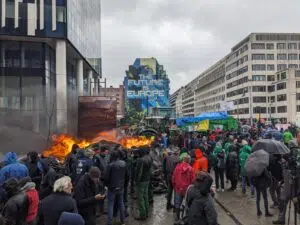
“We could not fail to have a demonstration in the home of European farmers. This is also a moment of protest,” said Giansanti, who, opening the Assembly in Brussels, emphasized that “taking to the streets with tractors is very easy. Bringing home concrete results is more complex.” In press point on the sidelines of the Assembly, President Giansanti did not spare harsh criticism of what is happening in parallel in the streets of Brussels: “There is a right way and a wrong way of representing the discomfort experienced. One can go around with tractors. One can protest and make proposals by going to meet the institutions.” More specifically, “I believe that everything needed to bring the future of agriculture back to the center of the debate is important. However, we must not go overboard with moments of protest that go beyond the system of laws,” and there is a need for “an open and peaceful confrontation between farmers and European institutions and, within that confrontation, we must find solutions.”
The president of Confagricoltura presented the Manifesto that “places the Common Agricultural Policy, reciprocity, and international agreements, productivity, and competitiveness of our businesses at the center.” In the same press point, Giansanti called on Union institutions to carry out a “major reform process of the CAP in the medium term and a major revisiting of international agreements” since “today we have markets suffocated by wild imports coming from outside Europe.” After the February 1 demonstrations, the Commission presented some concessions, which, according to the Confagricoltura President, “certainly solve some problems, but not the ones we, in Italy, were hoping for,” including “rebuilding the CAP from scratch with a hard medium-term reform,” he explained. “We are in a perpetual chase to put the patches where others have made the hole. We need a reversal of perspective,” Minister of Transport and Infrastructure Matteo Salvini said in his video conference address to the Assembly, urging EU institutions to make “concrete commitments and clear pronouncements” on several “controversial” legislative initiatives, from the Farm to Fork to the Nature Restoration Act to the Packaging Directive.
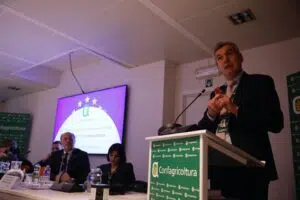
MEP Herbert Dorfmann (EPP) at the Confagricoltura Assembly in Brussels (February 26, 2024)
Going back to the Copa-Cogeca’s calls that the Vice-Presidency of the next European Commission be in charge of Agriculture, Südtiroler Volkspartei European MP Herbert Dorfmann (EPP) made it clear that “we must demand (from the EU executive) for the next round a strong, innovative commissioner for Agriculture with political vision. We can no longer afford another five years like the ones that have just passed.” A not too veiled attack on the current person in charge in the von der Leyen cabinet, Poland’s Janusz Wojciechowski – “who has failed to get anything done” – and on the former executive vice-president for the Green Deal, Frans Timmermans, who “pushed very hard on some measures that are now proving to be absurd,” Dorfmann made clear, hoping that “with a forward-looking commissioner, in the fall we could have a mid-term CAP review, bringing forward reforms before 2027.”
Confagricoltura’s proposals
On climate change, Confagricoltura’s Manifesto calls for “launching the ‘third pillar’ of the CAP for the common management of risks and damage caused by extreme weather events” and “increasing the budget and reviewing the way the current crisis reserve works.” On the Union’s enlargement front, Confagricoltura calls for “increasing, in real terms, the budget allocated to agriculture and remodulating CAP direct aid according to the evolution of prices at origin and income stability.” Also, regarding EU enlargement, in the immediate term, the proposal is to “include wheat and sunflower seeds in the list of sensitive products provided for in the proposal for a regulation concerning the extension of the suspension of duties on agri-food imports from Ukraine.” And on external relations with the rest of the world the Manifesto calls to “ensure compliance with EU rules on food safety, biodiversity, labor protection, and animal welfare” through “reciprocity and import controls.”

The president of Confagricoltura, Massimiliano Giansanti (February 26, 2024)
In the chapter on food safety, Confagricoltura’s Manifesto insists on “suspending the entry into force of some measures discussed during the expiring legislature, pending the conclusions of the strategic dialogue on the future of agriculture promoted by the European Commission,” particularly “the proposals for regulations on nature restoration and industrial emissions.” These include “reformulation of the proposal on packaging and packaging waste according to the principle of technological neutrality and taking into account the specificity of food products,” the elimination from the Common Agricultural Policy (CAP) of “obligations relating to compulsory rotation and non-productive land use,” and, on the administrative simplification front, the “marked reduction of red tape for CAP direct aid, including ecoschemes.” Finally, the call for a “moratorium on credits to improve the liquidity condition of companies” since “the exceptional increase in rates has coincided, since last year, with the contraction of the prices at origin” and support for the “dissemination of innovations the competitiveness of companies and for the establishment of increasingly sustainable production processes,” the document says.
English version by the Translation Service of Withub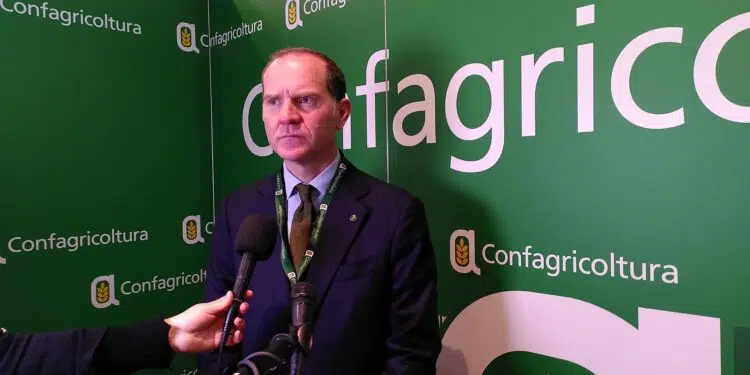



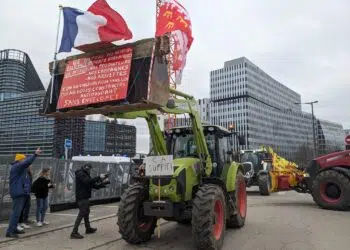

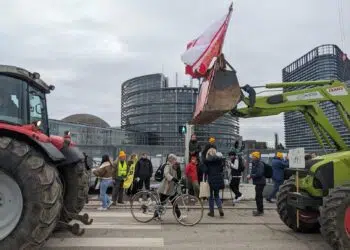


![Un campo coltivato [foto: imagoeconomica]](https://www.eunews.it/wp-content/uploads/2025/04/campo-coltivato-120x86.png)
![[foto: Wikimedia Commons]](https://www.eunews.it/wp-content/uploads/2025/04/alzheimer-120x86.png)